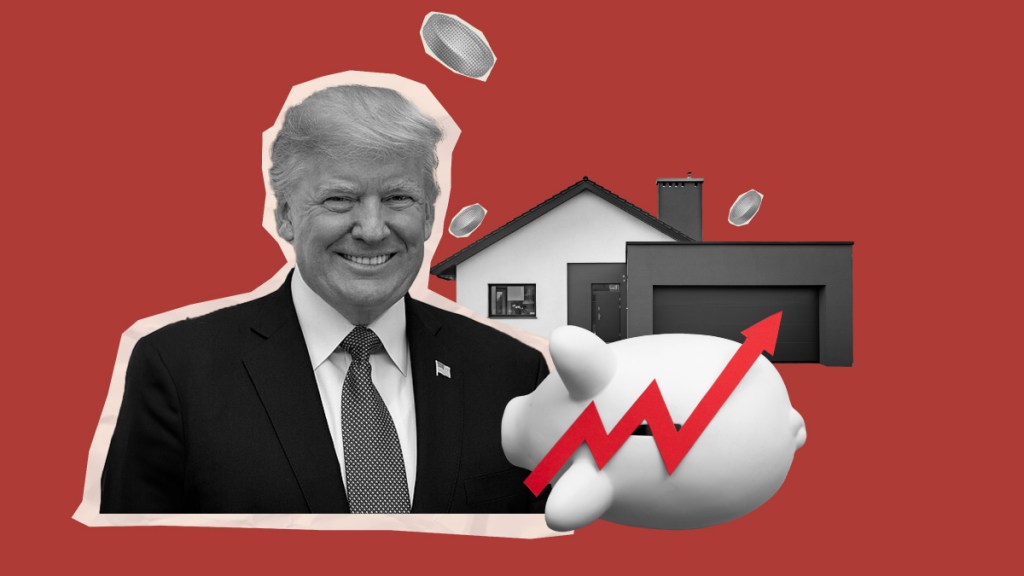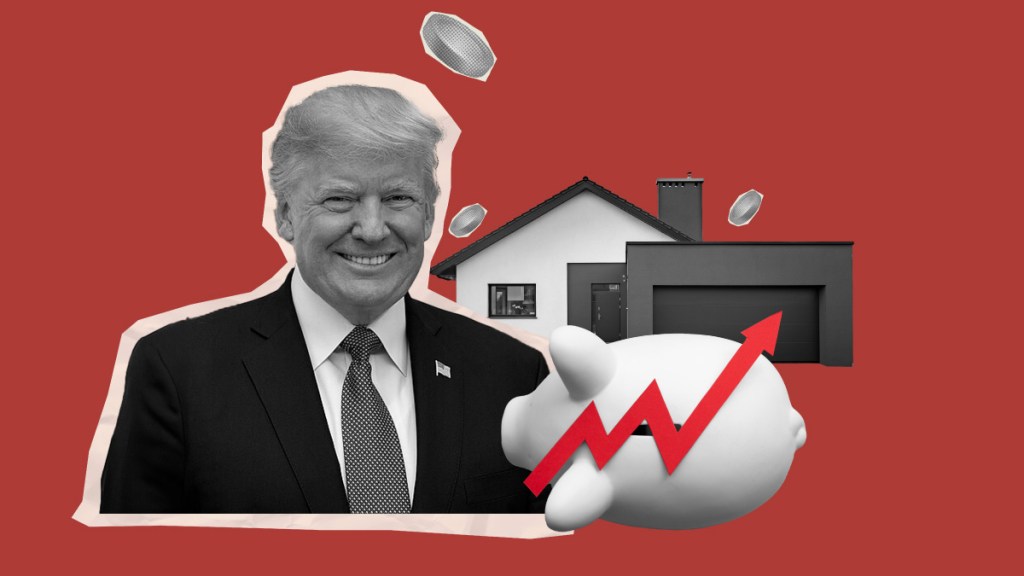
When it comes to what a possible Kamala Harris or Donald Trump victory in the presidential election means for the future of antitrust enforcement in the real estate space, lawyer and industry analyst Rob Hahn may have said it best.
“Nobody knows anything,” Hahn wrote in the Nov. 1 edition of his Notorious ROB email newsletter. “Neither Trump nor Harris have made antitrust a big issue in their campaigns. None of the people running have any kind of a real background in antitrust, and only Trump has any kind of a track record.”
Although the war between the Department of Justice (DOJ) and the National Association of Realtors (NAR) has been going on for decades, the most recent round of battles began under the Trump administration in 2018. That’s when Congressmen Tom Marino (R-Pa.) and David Cicilline (D-R.I.) sent a letter to the DOJ and the Federal Trade Commission (FTC) asking them to “examine competition-related issues in the real estate brokerage industry.”
The investigation eventually led to a lawsuit, which was settled in 2020. But NAR did not finalize the settlement until after Joe Biden took office in 2021. And under the Biden administration, the DOJ decided to withdraw from the settlement, leading to the most recent round of lawsuits and appeals.
Additionally, an article published by the New York Law Journal found that the FTC’s and DOJ’s antitrust divisions have roughly doubled the average number of complaints seeking to enjoin transactions filed each year under Biden, compared to filings with the agency under the Trump administration.
Trump’s track record shows that he has generally been more pro-business than other administrations. This has led to speculation that under a second Trump term, many of the real estate industry’s antitrust concerns would go away, while a Harris presidency would result in a continuation of the status quo. But industry analysts and attorneys are not so sure.
While the Consumer Financial Protection Bureau (CFPB) does not deal with antitrust issues, former CFPB deputy enforcement director Jeff Ehrlich believes that, generally speaking, a second Trump administration will be more aggressive in enforcement than many expect.
“In 2020, the last full year of the previous Trump Administration, the Bureau brought 48 enforcement actions; so far this year, it has brought only 21,” Ehrlich wrote in an email.
He went on to note that during the Trump administration, the bureau “brought some pretty aggressive cases, including in the housing space.“ It filed suit against nonbank lender Townstone Financial for alleged violations of the Equal Credit Opportunity Act (ECOA) through discrimination against prospective borrowers. It also settled a mortgage servicing case against Mr. Cooper for $73 million in redress and a $1.5 million penalty.
”If history is any guide, a second Trump Administration might not be as friendly to the industry as many expect,” Ehrlich wrote.
For Hahn, it was Trump’s selection of Sen. JD Vance as his running mate which has made things a bit murkier.
Vance has voiced his support for FTC Chair Lina Khan, stating at a policy conference in February that he looks “at Lina Kahn as one of the few people in the Biden administration that I actually think is doing a pretty good job and that sort of sets me apart from most of my Republican colleagues.”
Vance added that one of the things he most appreciates about Khan’s approach is that “she recognized there has to be sort of a broader understanding of how we think about competition in the marketplace.”
And Hahn isn’t the only who believes Vance’s selection has thrown off expectations. The New York Law Journal wrote that “Vance has seemingly positioned himself to play a significant role in antitrust enforcement and to pick up where Trump’s previous administration left off.”
“At a minimum, a second Trump presidency would likely continue the pro-enforcement stance from his first four years. If Trump entrusts Vance with significant control over competition policy, their administration may look surprisingly similar to the current, potentially including the appointment of someone with a similar populist agenda to Khan to the helm of the FTC,” the article states.
Marx Sterbcow, the managing attorney at Sterbcow Law Group, also doesn’t buy into the narrative that a Trump victory would mean a “return to normal” for the real estate industry.
“In the past, when the Trump administration entered into the settlement with NAR, things had kind of cooled down,” Sterbcow said. “You didn’t have things like active antitrust litigation going on, or the jury verdict in Missouri, so there was a lot more normalcy in the industry and everything for the most part was very stable and static.
“Obviously, that has changed dramatically. The industry right now is fakakta because you effectively have a hodgepodge of confusion for consumers across the United States, and it is only facilitating a lot more antitrust issues for companies and consumers.”
While Sterbcow acknowledges Trump’s pro-business track record, he does not believe a second Trump administration will stand by if consumers are blatantly being harmed or taken advantage of.
“It is not like consumer protection is going to go away,” Sterbcow said. “We saw in the previous Trump administration where they went after things that harm consumers. I think in the case of the commission rules, they will let it play out and allow market forces to take control, which could create another set of issues.”
Sterbcow is anticipating that the industry will undergo further significant changes in the next 24 months. But he also feels that if these changes are making things worse for consumers, the DOJ’s antitrust division will take further action.
Hahn shares a similar view, supported by what he feels is Trump’s focus on decreasing the cost of living, which he believes will translate into a focus on housing. Hahn said if the Trump administration homes in on housing, antitrust pressure on the industry could continue if things like agent commissions are perceived as inflated or a potential roadblock to homeownership.
In the same way industry experts believe a second Trump administration won’t be completely lax on enforcement and antitrust regulations, they are also skeptical that a Harris presidency would mean a continuation of the path set forward by the Biden administration. Fueling some of this skepticism is that the vice president’s stance on antitrust is unclear.
Harris has previously announced her intentions, if elected, to pass a federal ban on price gouging. She has aims to take on Big Pharma and corporate landlords, which some believe are indications that she well may continue the Biden administration’s antitrust agenda.
Some have noted that a Harris victory may wipe the slate clean when it comes to antitrust, but there does not appear to be any evidence to suggest she will completely change course from what the Biden administration has pursued.
Sterbcow, for one, not only sees a continuation but a ramping up of antitrust enforcement.
“I think there could be a lot more,” Sterbcow said. “I think you’ll see a lot more fair lending and fair housing enforcement, especially on the price of real estate commissions, and that is something no one in the industry wants because we have no data on how things will play out with the current policy changes in place.”





